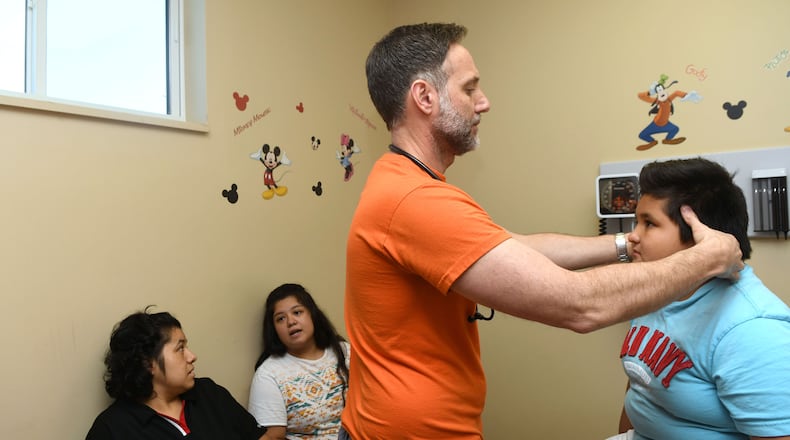One of the touchiest subjects in the Republican-led state Legislature was starting to get airtime in recent weeks: whether to try to insure more of Georgia’s poor and uninsured using a state and federal program under the Affordable Care Act.
Then Friday night a federal judge in Texas struck down the entire law nationwide.
The ACA, also known as Obamacare, will continue chugging along until the lawsuit makes its way through the appeals process. But that could take months or years. In the meantime, nearly a decade after the law first passed, the ACA is back to facing its long-standing enemy: uncertainty over its fate.
What that means for Georgians in the upcoming legislative session depends on who’s talking.
“We certainly have concerns,” said Laura Colbert, the director of Georgians for a Healthy Future, an advocacy group. “This court fight could drag on for some time, which leaves Georgia consumers in limbo as long as it’s playing out.”
Colbert has heard discussions about Georgia seeking some type of Medicaid “waiver” that would allow the state to insure more people under Medicaid but tailor the program in a more conservative way.
She was concerned about whether the Texas ruling would throw a wrench in those works.
“Georgia has been in a wait-and-see posture since the Supreme Court originally ruled on the ACA in 2012,” she said. “It’s time for us to move forward.”
Colbert’s group prefers outright Medicaid expansion to insure Georgia’s uninsured poor, but she knows GOP legislators do not favor going that far. Instead, they may pursue a waiver.
Experts say a waiver, depending on its form, could insure thousands or hundreds of thousands of Georgia residents. The state currently has among the nation’s highest uninsured rates at 13.4 percent, accounting for more than 1 million people.
On Friday, during a legislative study committee hearing just hours before the ruling came down, the panel’s chairman, state Sen. Ben Watson, R-Savannah, addressed Medicaid waivers.
"I would embrace that discussion," he said. "Love that discussion. Because I think it is the responsibility of our Legislature, of our society, that people have coverage so that they can be seen."
On Monday, Watson said in a text message that he was not ready to discuss the fallout of how the decision might affect waivers.
Representatives for Gov.-elect Brian Kemp and state House Speaker David Ralston did not comment on the question. Some legislators said they didn’t think the ruling itself would cause a delay.
“It’s not a halt to it,” said state Sen. Renee Unterman, a Republican from Buford and the chairwoman of the Senate Health and Human Services Committee. She cited Kemp’s hiring of Tom Price as an adviser. As President Donald Trump’s first U.S. secretary of health and human services, Price was a major driver of conservative-leaning waivers; and she noted that a waiver could be useful in getting opioid addicts into therapeutic addiction treatment, a major issue in the state. “It’s exciting times for health care,” she said.
State Sen. Burt Jones, the chairman of his chamber’s Insurance and Labor Committee, said that during the upcoming session he thinks there will “be a definitely open and active discussion” of waiver ideas in spite of the ruling.
“As you well know, it’s been well-debated and been litigated and everything else ever since it was enacted,” Jones said. “The worst thing you can have in the marketplace is uncertainty.”
Jones said he and his colleagues who also represent rural areas are interested in the discussion because they see the brunt of the problems from the uninsured poor in their districts.
A representative for some rural hospitals, Jimmy Lewis, echoed Jones’ message on the impact to rural facilities.
“We’ve got to find a new way to do business,” said Lewis, the CEO of Hometown Health, and the right kind of waiver could help. He looked at the tumble in health stock prices after the Texas ruling and wasn’t happy.
“I think the worst challenge is the knowing that this is going to be tested (appealed) for quite some time,” Lewis said. “We could be looking at one to three years of pretty major uncertainty. That’s happening at the same time that so many other things related to insurance are changing. …
“It’s hard at this particular moment to translate that level of uncertainty into so much of what we’re doing,” he added. “I think as we go into the legislative session we’ll see how that translates into policy and the preservation of access. Sometimes you better be careful with what you ask for. You just might get it.”
Stay on top of what's happening in Georgia government and politics at ajc.com/politics.
About the Author
Keep Reading
The Latest
Featured




